New Civil Service secondment rules were issued by the Department of Public Expenditure & Reform (DPER) last December.
These state that secondments are supposed to be temporary, usually for six months, but can be up to a maximum of five years.
Secondees retain the right to return to their substantive post, at the end of the secondment.
All secondment adverts are supposed to be sent to DPER for clearing, before being sent to the Public Appointments Service.
Secondees continue to be treated as a staff member of the parent organisation for the purposes of internal competitions, pay and progression.
The rules state: "Secondments provide staff members with opportunities to broaden their skills and continue their professional and personal development while retaining the right to return to their substantive post at the end of the secondment."
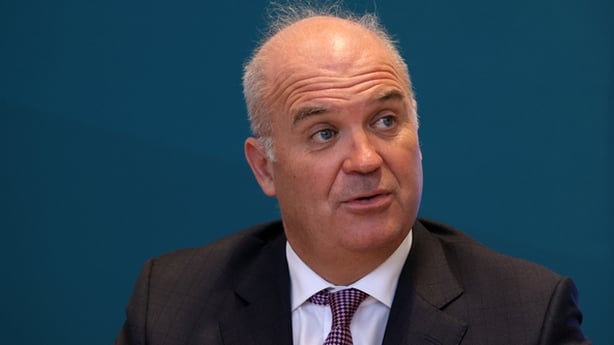
This day last week, in my column on this website, I revealed that the post at Trinity College, Dublin, to which the Chief Medical Officer was to be appointed, was to be an open-ended secondment, funded by the Department of Health, the taxpayer.
The post was created by TCD with Dr Holohan in mind and was not put out to open competition. The details on the post were provided to me by Trinity College after I put a set of written questions to them on 29 March.
Up to that point, all that was known was what was in the press release on Friday 25 March - from the Minister for Health - stating that Dr Holohan was to become Professor of Public Health Strategy & Leadership at Trinity College Dublin on 1 July.
"Some politicians claimed the issue had similarities to the planned appointment of Katherine Zappone as a UN special envoy"
In that statement, Minister Donnelly wished the CMO all the best in the new and exciting chapter in his career. The Taoiseach did likewise.
Dr Holohan said in that statement that he looked forward to using his experience, knowledge and skills to enable Trinity College Dublin to make a leading contribution to strengthening the knowledge and practice of public health leadership in Ireland.
However, the Department of Health statement made no mention of the nature of the arrangements. That would only be made public a week later by RTÉ News.
This is not an issue about the CMO’s abilities, talents and leadership qualities. Those raising questions about the appointment say it is about transparency and process. Even the Government takes that view.
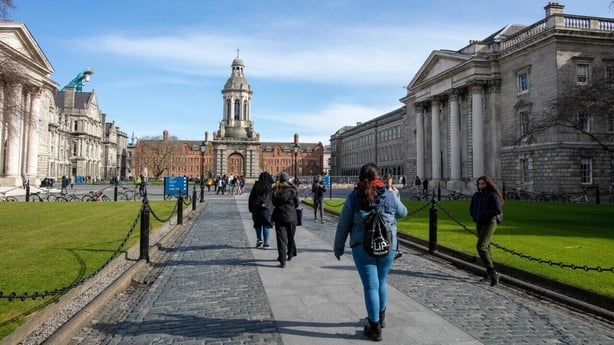
The Taoiseach said he was unaware of the details of the arrangements and told the Dáil this week that he had "no hand, act or part" in the job move for the CMO.
The Tánaiste, Leo Varadkar, said the nature of the post should have been made clear at the outset. He added that it could have been handled better.
Some politicians claimed the issue had similarities to the planned appointment of Katherine Zappone as a UN special envoy.
Minister for Public Expenditure, Michael McGrath, remarked that there were some unusual characteristics to the new role at TCD.
He said that approval from his Department was not sought, given that the Department of Health is due to pay the salary of around €187,000 for the new professorship.
John McGuinness, Chairperson of the Oireachtas Committee on Finance, said he had serious concerns about how the Department reached the decision in relation to it.
At the Health Committee this week, David Cullinane, Sinn Féin Health Spokesperson, said a secondment meant that the person could return to their original post. He said this raised questions for the Department, including who signed off on the deal.
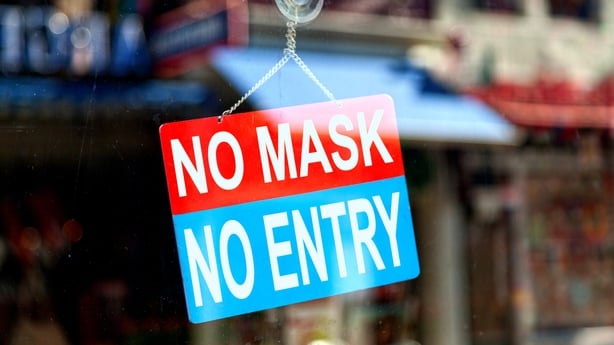
Senator Martin Conway, Fine Gael, told the Committee that an open-ended secondment could mean the Department of Health would pay for it for possibly 20 years and that this was not appropriate.
Robert Watt, Secretary General of the Department, said that a permanent CMO would be appointed in the coming months.
With the Dáil going into Easter recess, the Health Committee wanted the CMO to come before it this week to discuss Covid-19 strategy and the TCD post.
Initially, the CMO’s office had indicated he would be available to the Health Committee after Easter but he did go before the committee in a private session on Thursday.
"The Taoiseach will be looking for much more detail on how Ireland can benefit from Dr Tony Holohan's secondment to this major post"
Dr Holohan told the Committee that his secondment to TCD meant that he had agreed to relinquish his role as CMO and that it was "not my intention to return to this role at any point in the future. It is important that my successor feels fully empowered and enabled to undertake the role as they see fit".
If the TCD post goes ahead as planned, it will essentially mean the Department of Health will be paying for the cost of two CMO jobs - Dr Holohan's salary and contract entitlements, plus the salary for whoever is appointed as the new CMO.
Yesterday, the Taoiseach, Micheál Martin said the CMO secondment must be paused and reassessed until he receives a report from the Minister for Health on Monday.
He said the research element of the role must be teased out and that the issue was more than just a personnel one.
Robert Watt will compile the report. He has responsibility for all arrangements in relation to staffing, including the secondment of Dr Holohan.
This is not an independent review into what occurred. One of the top civil servants involved will write the report into the affair for Government.
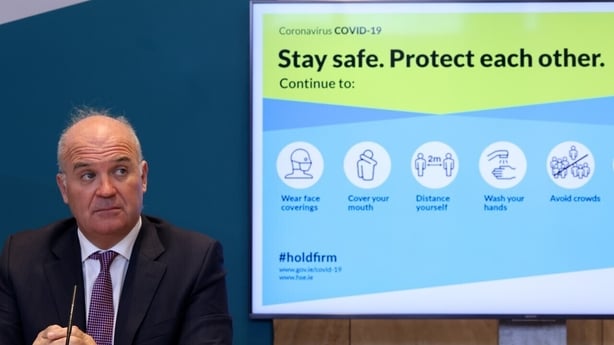
Minister Donnelly said this week he did not sign off on the secondment but that he fully supports it.
It does raise questions about communications within the Department of Health. The detail around such a new role was always going to come under scrutiny.
Dr Holohan is still the CMO and a very significant civil servant.
Last night, a new group of 20 experts to advise the Government on the Covid-19 medium to long term strategy, was announced.
It replaces the National Public Health Emergency Team and will be chaired by Dr Tony Holohan.
It includes Deputy CMO, Dr Ronan Glynn, Professor Philip Nolan, and Dr Cillian De Gascun, who were on NPHET and new people like Professor Luke O' Neill.
Dr Holohan will chair the group as CMO, until his departure to TCD if that proceeds.
"It will need to be clear how the taxpayer can get value for money from the newly-created position"
Dr Holohan is now one of the most prominent public figures in Ireland. He was in the public eye after his hard-hitting 2014 report on baby deaths at the Midland Regional Hospital in Portlaoise.
He also took a particular view about the CervicalCheck crisis, not shared by the women affected.
But his biggest challenge was the Covid-19 pandemic and his often testing encounters with Government on restrictions.
It is probably fair to say that he has brought to prominence the important of public health, like no one else before, when it was often viewed as a rather obscure area. It came into its own during the pandemic.
People have not questioned his ability to meet the demands of the proposed new TCD post nor the importance of such a job.
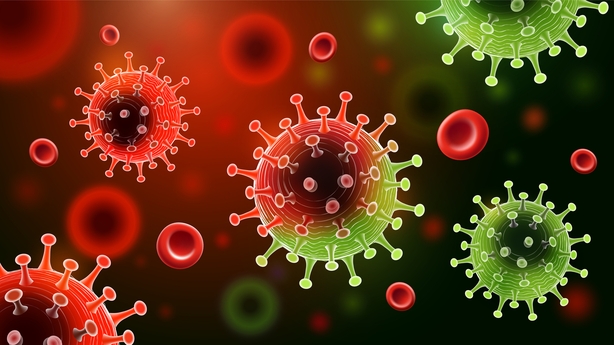
Minister Stephen Donnelly emphasised that ultimately the country will benefit from the new role.
In seeking a report from Mr Donnelly, the Taoiseach will also be looking for much more detail on how Ireland can benefit from Dr Holohan’s secondment to this major post.
It will need to be clear how the taxpayer can get value for money from the newly-created position.
The TCD professorship was designed in the context of recent and ongoing global events, including conflict, climate change, migration and the recent pandemic, having impacted on almost every aspect of people’s lives.
Following an interview by the selection committee (the Provost, Vice-Provost, three faculty Deans and an External assessor from the University of Milan) the TCD University Council approved the appointment of Dr Holohan on 25 March, the day his appointment was announced by the Minister for Health.
But with the appointment now put on ice, taxpayers will be eager to know what public interest this role will serve.






